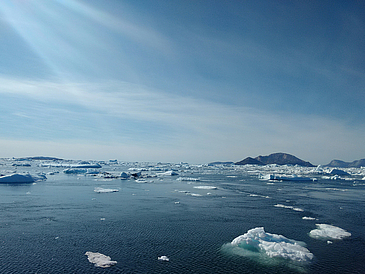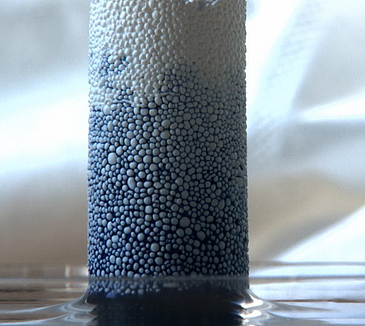The promotion of young researchers at the University of Bremen is first-rate and highly successful. This has once more been confirmed by the German Research Foundation (DFG), which has extended its financial support for two of the Research Training Groups it has already been funding. The Research Training Group “MIMENIMA” in the materials sciences as well as the German-Canadian program “ArcTrain”, which is based at the Center for Marine Environmental Sciences (MARUM), are to receive a total of 8.5 million euro for a further four and a half years.
MIMENIMA: Novel porous material structures for engineering applications
Energy, environmental, process and space technology are the areas of technology in which the Research Training Group MIMENIMA concentrates its research. The abbreviation stands for “Micro-, Meso- and Macroporous Non-Metallic Materials: Fundamentals and Application GRK 1860”. “The groundbreaking research idea behind this is to tailor novel, porous ceramic structures and their surfaces for use in key applications in the aforementioned technology areas,” explains Professor Kurosch Rezwan, spokesperson for the Research Training Group.
Quota of women stands at a remarkable 45 percent
The Research Training Groups apply the latest production methods for technical ceramics, which have been decisively further developed in recent years in Bremen. Technical ceramics are extremely durable and resistant. They hold promise of particularly sustainable technological use and enable completely new applications that are not possible with other materials. What is noteworthy in addition to the further funding: The quota of women in the Research Training Group is 45 percent – which is a very high share for such a group in the field of technology.
ArcTrain: On the trail of climate change in the Arctic
The team in the likewise extended Research Training Group ArcTrain has been monitoring the processes and effects of climate change in the Arctic since 2013. Because the Arctic is changing: Temperatures there are rising twice as fast as the global average, the sea ice is decreasing, and the ice masses on the continents are melting. As a consequence, not only are the ecosystems of the polar seas and sedimentation areas undergoing change: Through a complex chain of physical and chemical processes, the Arctic influences the climate and habitat of people all around the world. The numerous interactions involving the ice, the ocean, and the atmosphere also make it difficult to predict how the system will respond to climate change.
International research and doctoral studies
ArcTrain is not funded solely by the DFG, but also by the National Science and Engineering Research Council (NSERC) of Canada. Young researchers are trained in Bremen as well as in Canada in the context of doctoral studies. Their sophisticated research has provided new information on the relationship between ocean warming and the stability of the Arctic glaciers, improved models and observations on the expansion of sea ice, and highlighted the transport of heat from the North Atlantic. Of particular mention is the implementation of numerous joint marine expeditions in the region.


